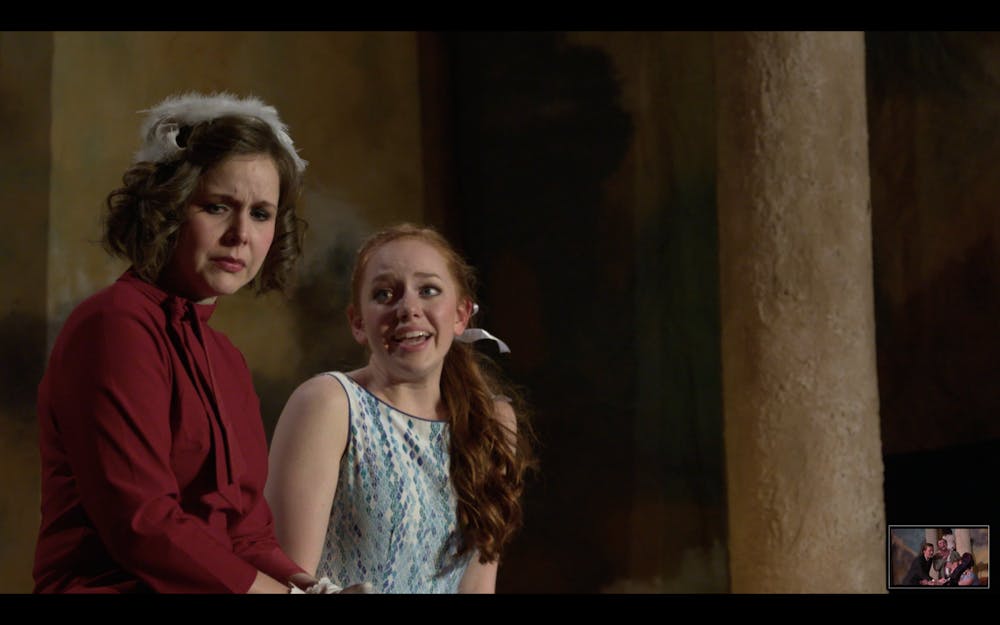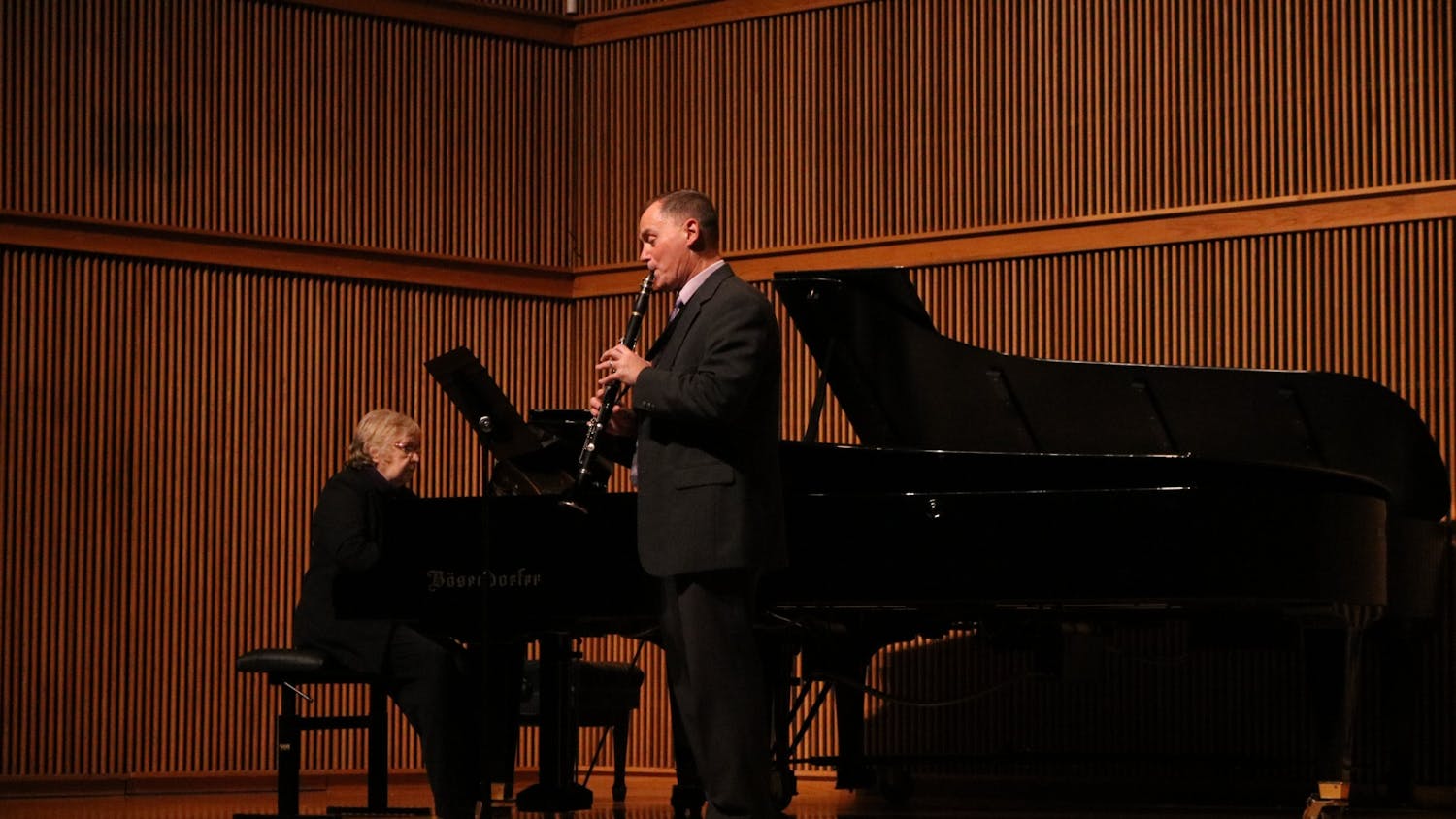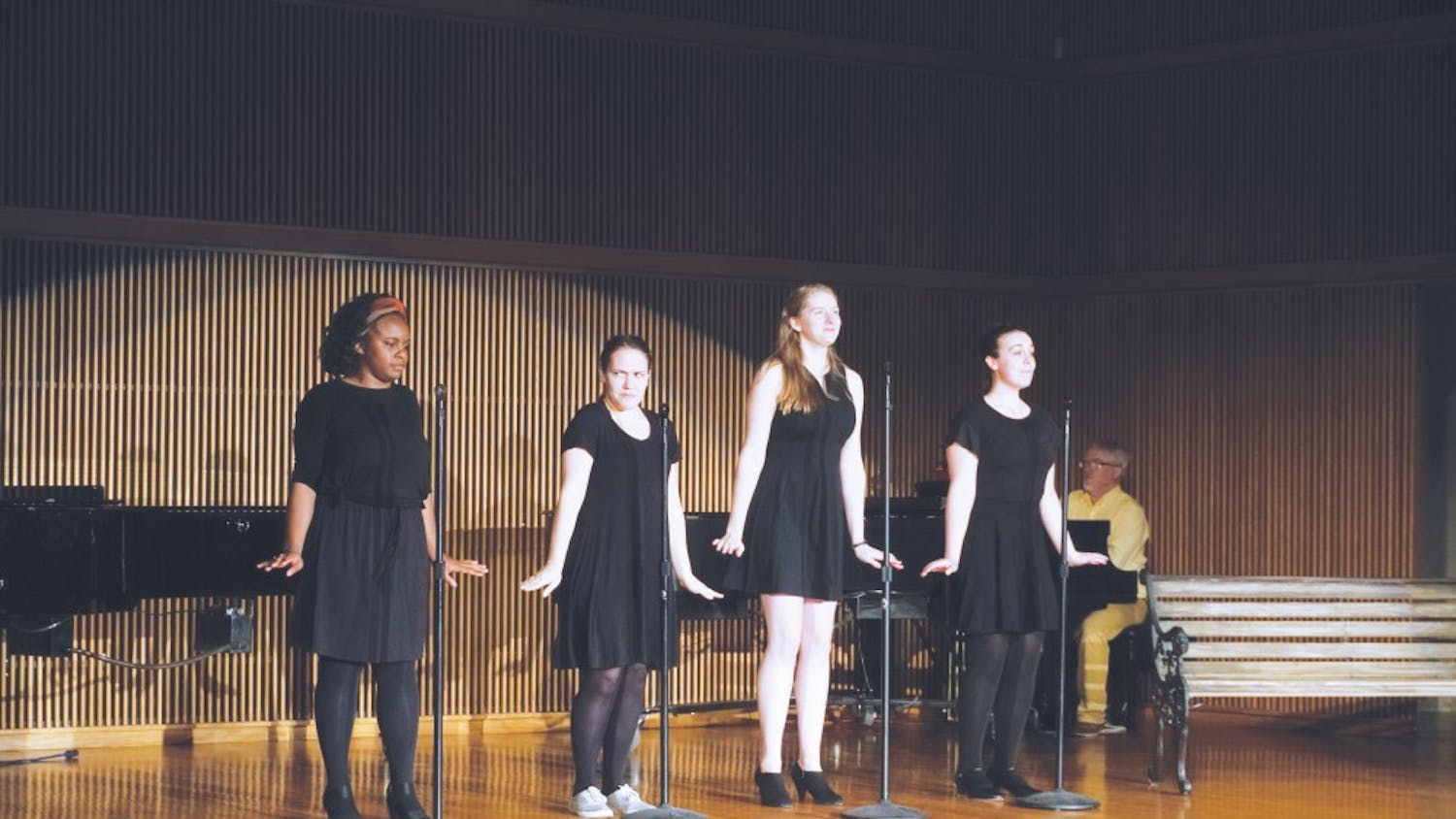Taylor University Lyric Theatre’s production of “The Light in the Piazza” over the weekend is a testament to how the unexpected can feel relevant.
Set in Florence, Italy in the 1950s, this story follows an American woman and her daughter as they spend the summer in Florence. The daughter, Clara, falls in love at first sight with a young Italian boy named Fabrizio. Because Clara is young and has some unexplained mental illness due to a childhood accident, her mother intercedes to help Clara make sense of the situation. Meanwhile, Fabrizio’s Italian family likewise involves themselves and chaos ensues.
While this seems like a fun plot of crossed wires and zany misunderstandings, it would be a mistake to lose the underlying tension that drives the story.
“It is a drama rather than a comedy, but the content is frequently humorous, particularly in the misunderstandings between American and Italian points of view,” said Conor Angell, associate professor of music.
Written in the 21st century and making its Broadway debut in 2005, the show contains many unprecedented elements because of its modern composition.
The first of these elements is a sort of distraction from the underlying story.
“On the surface it seems like it is a love at first sight, Romeo and Julie,” said sophomore Hannah Embree. “But the layers that emerge from the show are really interesting and make you think.”
Not only are the couple the central figures in the play, but the American mother also plays a major role. According to freshman Kati Jones, this is what distinguishes this musical from others. Many musicals have a love story, but few take the time to focus on the familial relationships that mark many people’s lives.
Even the music itself is different.
“Its musical style is eclectic, referencing elements of operatic writing as well as jazz and popular music,” Angell said.
This musical is also unprecedented in theme. Not only does this production deal with themes of love and family, but it also discusses mental illness. The audience never hears Clara’s point of view. They are left to wonder and watch as they witness the rest of the cast react and interact with her.
This is not to say she is unempathetic — to watch Clara’s hands shake is to look down and see your own quivering in agreement. Hearts soar as the mother walks in behind her to the church where she will be married, singing a reprise of the titular song.
“That is what the audience should really look for, where (Clara) starts and where she finishes because it is polar opposite and it is a beautiful character arc,” Jones said.
Although Clara’s story is partially about mental health, it is also about an obsession with the idea of normal and the humanity that is sacrificed when people’s value is staked on what is considered average.
At its most vulnerable moments, the production was tender and finespun. At its most lighthearted, it shone.
Well-acted and well-sung, the show told a story that moved audiences even to tears and left only the regret that it was over.
“Light in the Piazza” ran from Feb. 14–16.





